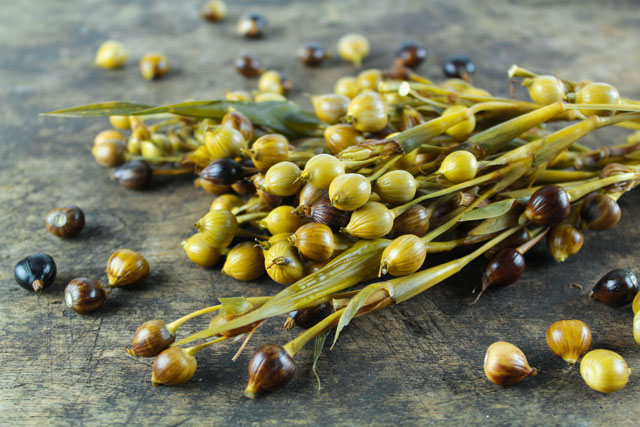Scientists find that a popular Chinese herbal medicine is effective in eliminating colon cancer cells
Wednesday, September 26, 2018 by: RJ Jhonson
Tags: adlay, adlay millet, alternative medicine, angiogenesis, anti-cancer, cancer, cancer prevention, cancer treatment,Chinese medicine, Coix lacryma-jobi, colon cancer, Colorectal Cancer, food as medicine, goodhealth, goodmedicine,goodscience, Job's tears, natural cures, traditional Chinese medicine
Tags: adlay, adlay millet, alternative medicine, angiogenesis, anti-cancer, cancer, cancer prevention, cancer treatment,Chinese medicine, Coix lacryma-jobi, colon cancer, Colorectal Cancer, food as medicine, goodhealth, goodmedicine,goodscience, Job's tears, natural cures, traditional Chinese medicine
980VIEWS

(Natural News) Coix lacryma-jobi var. ma-yuen (Rom.Caill.) Stapf, also known as adlay, adlay millet, or Job’s tears, has been identified by previous studies as having anti-proliferative effects on lymphoma, lung cancer, and colon cancer. A study published in the journal BMC Complementary and Alternative Medicine investigated the anti-cancer effects of Coix lacryma-jobi var. ma-yuen Stapf sprout extracts (CLSE) on colorectal cancer cells.
- The researchers used a variety of methods to determine the effects of exposing HCT116, a human colon cancer line, to CLSE. To determine the impact of the extract on cell proliferation and signaling, they performed Cell Counting Kit-8 (CCK-8) assay and western blot analysis.
- They determined the anti-metastatic activity of the extract in hypoxic conditions through scratch-wound healing, transwell migration, matrigel invasion, and adhesion assays.
- The researchers also administered CLSE on human umbilical vein endothelial cells (HUVECs) to determine its effects on the formation of new blood vessels or angiogenesis.
- They found that compared to the control cells, those exposed to CLSE exhibited decreased migration rates by more than 80 percent. The treatment also reduced the cells’ invasiveness and adhesive potency by 54 percent and 50 percent respectively. Finally, the extract inhibited the growth of tubes in HUVECs by up to 91 percent.
The results convinced the researchers that CLSE may be used to treat patients with colon cancer because of its ability to suppress the cancer cells’ migration, invasion, and adhesion, as well as the growth of new blood vessels.
Read the full text of the study at this link.
Learn more about cancer and how it can be addressed naturally at Cancer.news.
Journal Reference:
Son ES, Kim YO, Park CG, Park KH, Jeong SH, Park J-W, Kim S-H. COIX LACRYMA-JOBI VAR. MA-YUEN STAPF SPROUT EXTRACT HAS ANTI-METASTATIC ACTIVITY IN COLON CANCER CELLS IN VITRO. BMC Complementary and Alternative Medicine. 6 November 2017;17(1). DOI: 10.1186/s12906-017-1990-y

No comments:
Post a Comment